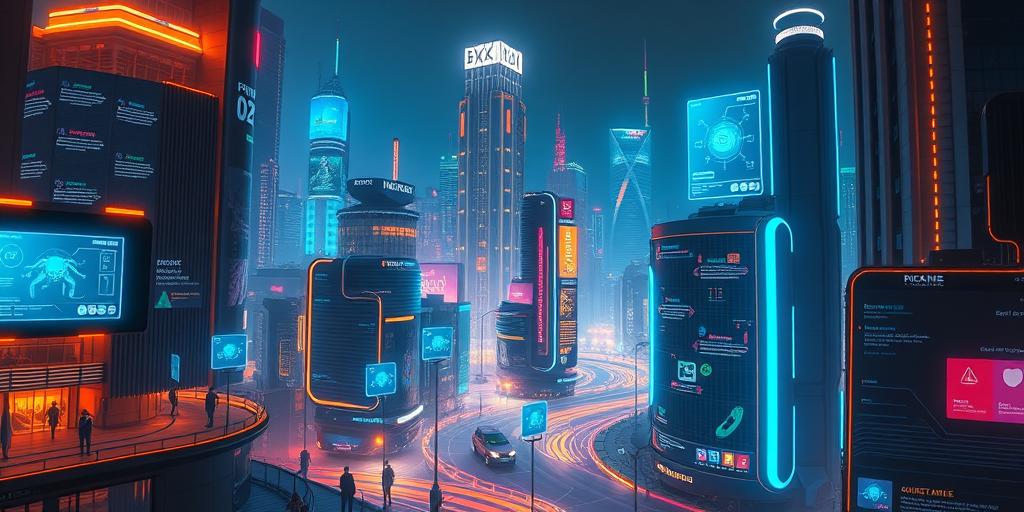Are we becoming overly reliant on artificial intelligence? In today’s rapidly evolving technological landscape, the lines between human ingenuity and artificial intelligence are blurring. This raises a critical question: are emerging technologies making us too dependent on AI? Let’s delve into this fascinating and complex issue and explore both sides of the coin.
The Allure of AI: Why We’re Hooked
The allure of AI is undeniable. From self-driving cars to medical diagnosis, AI promises increased efficiency, accuracy, and convenience. AI systems are trained on massive datasets, making them incredibly powerful tools capable of handling complex tasks that once required significant human intervention. This leads to increased productivity and innovation across various sectors. Think of AI-powered customer service bots providing instant support 24/7, or AI algorithms optimizing supply chains for major corporations, minimizing waste and maximizing profits. But this convenience also breeds dependence. The more we rely on AI for task automation, the less we practice those tasks ourselves, potentially diminishing our own abilities and critical thinking skills. We’re essentially outsourcing our cognitive abilities and intellectual effort.
The Dangers of Over-Reliance
The pervasive integration of AI into our daily lives poses some serious risks. Over-dependence on AI-driven systems can lead to a decline in problem-solving skills, critical thinking, and even common sense. Imagine a scenario where GPS navigation fails – without the ability to read a map or ask for directions, we become utterly lost. Similarly, over-reliance on AI-powered medical diagnostic tools might lead to a decrease in the diagnostic skills of medical professionals, potentially leading to misdiagnosis or delayed treatment.
Skills Atrophy and the Deskilling Effect
Another significant concern is the potential for skills atrophy. When we constantly rely on AI to perform tasks, we risk losing the ability to perform these tasks ourselves. This is particularly true in fields where AI is rapidly replacing human labor, leading to significant job displacement and a decline in certain essential skills. We might become reliant on AI for simple calculations, preventing the development of vital mathematical skills. This ‘deskilling’ effect can have wide-ranging societal implications, reducing resilience and adaptability in the face of technological disruption.
Striking a Balance: Harnessing AI’s Power Responsibly
While the potential downsides are real, the benefits of AI are too significant to ignore. The key lies in finding a balance – leveraging the power of AI to enhance our capabilities without becoming completely dependent on it. We must strive for a future where AI empowers humans, rather than replacing them entirely.
Education and Training
A crucial step towards responsible AI integration is investing heavily in education and training programs that equip individuals with the necessary skills to navigate an increasingly AI-driven world. This means not only teaching people how to use AI tools but also fostering critical thinking, problem-solving, and adaptability. We need to emphasize lifelong learning and ensure that education systems prepare individuals for the changing job market, fostering creativity and innovation in the face of automation.
Ethical Considerations and Responsible Development
The ethical implications of AI must be carefully considered. We need to establish clear guidelines and regulations for the development and deployment of AI systems, ensuring fairness, transparency, and accountability. This includes addressing issues like algorithmic bias and ensuring that AI is used to benefit humanity as a whole. We must also develop AI systems that are robust, reliable, and resistant to manipulation or misuse, mitigating potential risks and building trust.
Human-in-the-Loop Systems
In many contexts, integrating a ‘human-in-the-loop’ approach can be invaluable. This means designing AI systems that maintain a crucial human element in decision-making, utilizing AI for assistance but ultimately retaining human control and oversight. This prevents complete dependence on AI and safeguards against potential errors or biases. By creating a collaborative partnership between humans and AI, we can leverage the strengths of both while mitigating weaknesses.
The Future of AI and Human Collaboration
The future of AI is inextricably linked to the future of humanity. The path forward requires a proactive approach, emphasizing responsible development, ethical considerations, and a commitment to lifelong learning. Instead of fearing AI’s dominance, we should embrace its potential as a tool that augments human capabilities, allowing us to tackle complex challenges and achieve remarkable advancements. The ultimate goal is to create a symbiotic relationship, where AI works in harmony with humans, driving progress and prosperity for everyone.
Embrace the potential of AI while preserving our own unique skills and abilities. The future isn’t about choosing between AI and humans; it’s about creating a future where both thrive.




